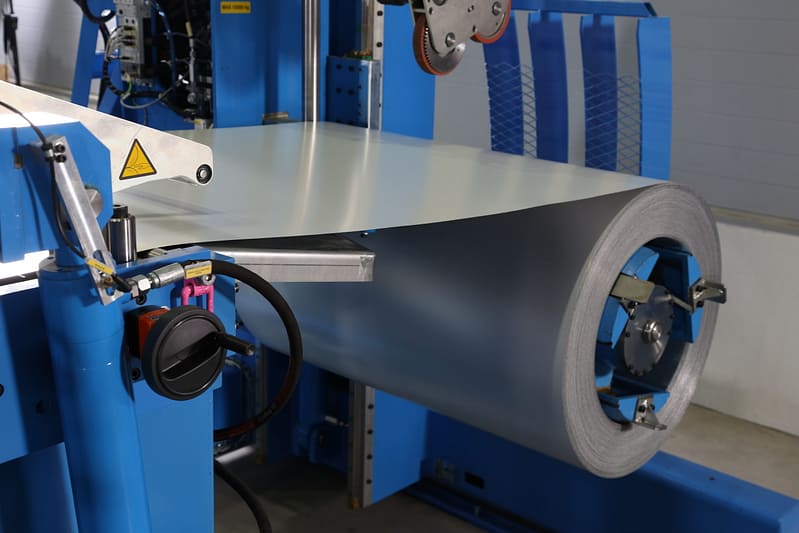Getting to Grips with Sheet Metal Punching
Let’s dive into the world of sheet metal punching, a cornerstone in the manufacturing realm. It’s the go-to process for crafting metal parts used in everything from cars to planes. Picture this: a punching machine, like a mechanical heavyweight, delivering a knockout punch to create holes or shapes in sheet metal. Traditionally, this was the domain of standalone CNC machines, but thanks to tech wizards, we’ve got more automated and efficient systems now. Take Pivatic, for instance—they’ve got systems that are all about boosting productivity by slashing cycle and setup times, letting you whip through parts in one smooth move.
Why is sheet metal punching such a big deal? Well, it’s a vital cog in the wheel for industries like automotive and aerospace. But, like any industrial process, it comes with its own set of environmental baggage. If you’re a company on a mission to go green and shrink that carbon footprint, understanding these impacts is your first port of call.
Environmental Footprints: The Direct Hits
When it comes to the environment, sheet metal punching isn’t exactly a wallflower. It’s got a hefty appetite for energy, especially if you’re still rocking those old-school CNC machines. And where there’s energy, there’s usually greenhouse gas emissions, particularly if you’re tapping into fossil fuels. Plus, those punching machines can belch out volatile organic compounds (VOCs) and other nasties, which aren’t doing our air quality any favors.
And let’s not forget the noise! Those machines can be as loud as a rock concert, which isn’t great for the folks working nearby or the neighbors. Then there’s the heat they generate, which means more energy guzzled up by cooling systems. It’s a bit of a vicious cycle, isn’t it?
Waste Not, Want Not: Managing Scrap and Recycling
Waste management is the name of the game when tackling the environmental side of sheet metal punching. The process churns out scrap metal, and if you don’t handle it right, it can be an environmental headache. But here’s the silver lining: scrap metal is recyclable. By recycling, you’re cutting down on the need to dig up new raw materials and shrinking the manufacturing process’s environmental footprint.
Recycling isn’t just about saving resources; it’s also about slashing energy use and emissions tied to making new metal. Companies like Pivatic are on the ball, fine-tuning their processes to cut waste and ramp up recycling. By getting waste management right, manufacturers can seriously dial down their environmental impact.
Green Innovations in Sheet Metal Punching
In the past few years, we’ve seen some nifty eco-friendly innovations in sheet metal punching. These tech advances aim to trim the environmental fat while keeping productivity on the up and up. Automated punching lines are one such innovation, boosting energy efficiency by making the most of resources and cutting down on downtime.
Pivatic, for example, is all about custom production lines that blend advanced automation with material-friendly tech. These systems are designed to keep material handling to a minimum and waste to a bare minimum, making the manufacturing process more sustainable. And by swapping out hydraulic systems for servo-electric punching machines, you can cut energy use and emissions even further.
Another exciting development is punching machines that can handle a smorgasbord of materials, from pre-painted to plastic-covered and galvanized steel. This flexibility lets manufacturers pick materials that are kinder to the planet, like those with recycled content or a smaller carbon footprint.
Playing by the Rules: Regulations and Compliance
When it comes to sheet metal punching, playing by the environmental rulebook is crucial. Governments and regulatory bodies worldwide have laid down the law to curb the environmental impact of industrial processes. These rules often zero in on cutting emissions, managing waste, and boosting energy efficiency.
Manufacturers need to toe the line to dodge fines and keep their good name intact. This means adopting best practices for waste management, investing in energy-efficient tech, and keeping a close eye on environmental performance. By sticking to these regulations, companies can not only lighten their environmental load but also gain a leg up in the market.
Wrapping It Up
For manufacturers keen on upping their sustainability game, the environmental impacts of sheet metal punching are a big deal. By getting to grips with these impacts, companies can trim their carbon footprint, conserve resources, and boost their overall environmental performance. Innovations in eco-friendly punching tech, like those from Pivatic, are key players in this game, offering efficient and sustainable solutions for sheet metal fabrication.
As the industry keeps evolving, it’s vital for manufacturers to stay in the loop on the latest tech and regulations. By doing so, they can ensure their operations are not just compliant but also environmentally savvy, paving the way for a more sustainable future in manufacturing.
